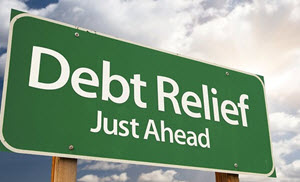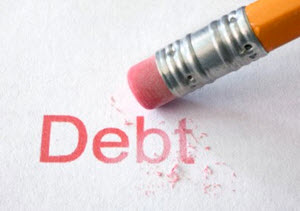 Chapter 4 of the Tribunals, Courts and Enforcement Act 2007 established a new form av insolvency in England and Wales. This form of insolvency is called debt relief order (DRO) and is not the same thing as bankruptcy. Compared to traditional bankruptcy, the debt relief order is intended to be easier, quicker and cheaper. It is aimed towards debtors who have few or no assets and a low disposable income.
Chapter 4 of the Tribunals, Courts and Enforcement Act 2007 established a new form av insolvency in England and Wales. This form of insolvency is called debt relief order (DRO) and is not the same thing as bankruptcy. Compared to traditional bankruptcy, the debt relief order is intended to be easier, quicker and cheaper. It is aimed towards debtors who have few or no assets and a low disposable income.
Debt relief order has been available in England and Wales since 6 April 2009 when the new law came into force.
At the time of writing, the fee for applying for a debt relief order is £90. If you can not pay the whole amount as a lump sum, you can pay it in instalments prior to applying for the debt relief order.
You can apply for a debt relief order without attending court.
What is a debt relief order?
If you are granted a debt relief order, you will not have to make any payments on your loans during a 12 month period. If your financial situation is still sufficiently bad after these 12 months, you debts will be written off.
The DRO will have an effect on your credit rating for six years.
The DRO will appear in the Individual Insolvency Register, a register that is open to the public.
If you do not follow the DRO-rules, the court can make a Debt Relief Restrictions Order (DRRO) against you. A DRRO can also be issued at the same time as your DRO is approved, if the court believes that you have been dishonest or are to blame for the situation you’re in. A DRRO can be in place from 2 to 15 years, which is much longer than the 12 months of restrictions that come with just a DRO.
 Are you qualified for a debt relief order?
Are you qualified for a debt relief order?
Not anyone with debts can get a debt relief order. There are several conditions that you need to meet in order to be approved for a DRO. Here are some of the most important ones (the list is not complete):
- You must live in England or Wales, or have lived / carried out business there in the last three years.
- You must owe £15,000 or less. If you have larger debts than this, a debt relief order is not possible.
- You must be unable to repay your debts.
- You must have £50 or less remaining per month after having paid for basic household expenses.
- You can not have assets worth more than a total of £300. There are however a few specific assets that will not be included in that sum.- A car worth £1 000 or less.- Approved pensions
– Household equipment and other basics that your or members of your household needs, including furniture, bedding and clothing.
Please note that homes are not excluded, so if you own a home worth more than £300 you can not qualify for DRO.
- You can not have obtained a debt relief order in the last six years.
- You can not be involved in any other kind of formal insolvency procedure when you apply for a DRO. Three examples of formal insolvency procedures are bankruptcy restrictions or undertakings, interim order, and an individual voluntary arrangement in accordance with the Insolvency Act 1986.
What you must and mustn’t do once you have been approved for a debt relief order
 Once you have been approved for a debt relief order, there are certain rules you must adhere to. Below, you will find some of the most important ones (the list is not complete).
Once you have been approved for a debt relief order, there are certain rules you must adhere to. Below, you will find some of the most important ones (the list is not complete).
- You are not allowed to act as a company director, or be involved in the ‘promotion, management or formation of a limited company’ without getting permission from the court.
- You are allowed to obtain credit, but you are not allowed to obtain credit worth £500 or more without telling the lender that you are currently going through a debt relief order. This includes credits that you apply for together with someone else. It also includes ‘acting with the intention’ of getting credit, e.g. ordering something online without signing up for credit but then fail to pay for the item right away when it arrives.
- If you apply for an overdraft facility, you must tell the bank or building society that you are currently undergoing a debt relief order. Also, you are not allowed to write cheques that you wont honour.
- If you carry on business in a different name than the name that you had when you obtained the DRO, you must tell everyone that you do business with the name under which you were approved for an DRO.
This article was last updated on: August 25, 2014
